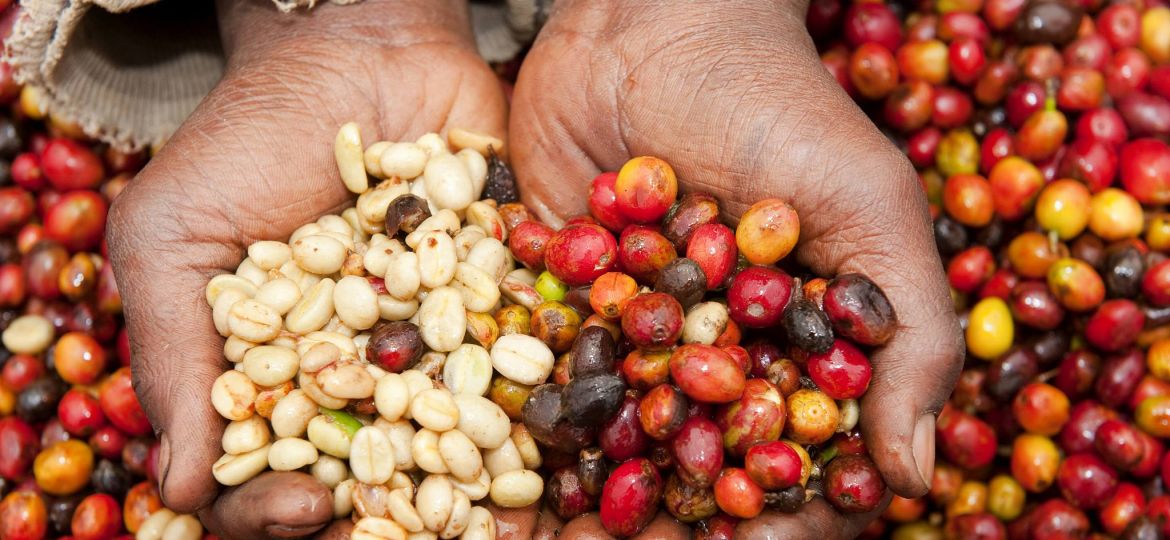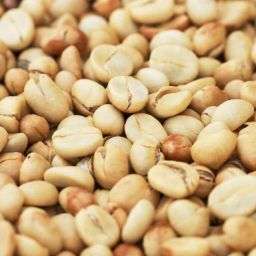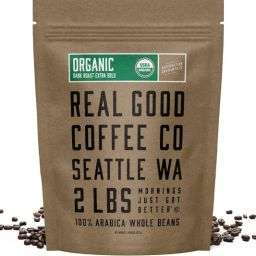
Rwanda coffee beans are celebrated worldwide for their high quality and distinct flavors, marking a significant presence in the global coffee market. These beans are primarily of the Bourbon variety, known for their rich and complex profiles, often featuring bright acidity and notes of fruit and floral.
The coffee industry plays a crucial role in Rwanda’s economy, providing livelihoods for thousands of smallholder farmers. The country’s unique geography, with its volcanic soil and high altitude, contributes to the exceptional quality of its coffee, making Rwanda a key player in the specialty coffee sector.
Key Takeaways
- Rwanda coffee beans are renowned for their unique flavor profiles, including notes of fruit, floral, and bright acidity.
- The industry significantly contributes to Rwanda’s economy, with a focus on quality and sustainability.
- Coffee farming in Rwanda supports community development and women’s empowerment, showcasing the crop’s social impact beyond its economic value.
The Cultural and Social Impact of Rwanda Coffee Beans
Coffee in Rwanda transcends its role as a cash crop, embedding itself deeply within the nation’s cultural and social fabric. This industry is pivotal in fostering economic growth and reducing poverty, especially in rural areas where most coffee farming takes place. Smallholder farmers, who make up the majority of the producers, often work within cooperatives or associations.
These organizations not only provide necessary support and resources but also ensure fair prices and promote sustainable practices, which in return enhances livelihoods and social cohesion.
The sector also has a pronounced gender aspect, with women playing a significant role in the coffee value chain. From planting and harvesting to processing and marketing, women’s involvement is crucial. Empowering them within this industry is seen as a pathway to increasing household incomes and achieving gender equality.
Post-genocide, coffee has become a symbol of reconciliation and unity in Rwanda, with cooperatives playing a vital role in community healing and building a peaceful society.
Challenges and Opportunities in Rwanda’s Coffee Industry
The Rwandan coffee industry, while burgeoning, faces significant challenges that could impact its sustainability and growth. Climate change poses a formidable threat, with rising temperatures, changing rainfall patterns, and an increased incidence of pests and diseases potentially reducing the yield and quality of coffee beans.
Additionally, the country’s rugged terrain and limited infrastructure complicate the transportation of coffee from remote farms to processing stations and markets, potentially leading to post-harvest losses and delays in reaching the global market.
However, these challenges are met with notable opportunities. The global demand for specialty coffee is on the rise, presenting a lucrative avenue for Rwandan farmers to garner higher prices for their premium beans. This demand encourages a focus on quality over quantity, allowing Rwanda to carve out a niche in the specialty coffee sector.
Moreover, Rwanda’s burgeoning tourism industry offers a unique opportunity to promote coffee tourism. Visitors can explore coffee farms, learn about the bean-to-cup process, and taste the distinct flavors of Rwandan coffee firsthand, thus fostering a deeper appreciation for the country’s coffee heritage and supporting sustainable agricultural practices.
The Production Process and Quality of Rwanda Coffee Beans
Rwanda’s coffee quality is significantly influenced by its cultivation and processing methods. The country’s coffee is predominantly grown by smallholder farmers, who rely on the Bourbon variety known for its superior flavor profile. These beans thrive in Rwanda’s volcanic soil and high-altitude regions, contributing to their distinct taste.
Two primary processing methods are employed in Rwanda: wet-processing and natural processing. Wet-processed (or washed) coffee beans are meticulously cleaned and fermented to remove the mucilage before drying, resulting in a cleaner, brighter cup with pronounced acidity and flavor clarity.
On the other hand, naturally processed beans are dried with the fruit still encasing the bean, imparting a sweeter, fruitier flavor profile that is highly prized among coffee connoisseurs. These methods, alongside the careful attention to cultivation, contribute to the unique and desirable flavor profiles of Rwandan coffee, ranging from vibrant fruity notes to deep floral aromas.
Notable Rwandan Coffee Varieties and Their Characteristics
Rwanda primarily cultivates the Bourbon variety of Arabica coffee, which is celebrated for its deep, complex flavor profiles that often feature a delightful balance of sweet, acidic, and fruity notes.
The Bourbon variety, known for its susceptibility to certain diseases but also for its excellent cup quality, thrives in Rwanda’s high altitude and volcanic soil, contributing to its distinct taste. The coffee cherries from this variety are denser and have a higher sugar content, which translates into a richer, more flavorful cup of coffee.
Aside from Bourbon, Rwanda also grows a limited amount of Caturra and Catuai varieties, though these are less common. These varieties contribute to the diversity of flavors in Rwandan coffee, with some farms experimenting with these to offer unique taste profiles to the specialty coffee market.
The cultivation practices in Rwanda, focusing on sustainable and quality-driven methods, further enhance the intrinsic qualities of these varieties, ensuring that Rwanda remains a distinguished producer of high-quality Arabica coffee.
Brewing and Enjoying Rwanda Coffee Beans
To fully enjoy the intricate flavors of Rwandan coffee beans, a proper brewing method is key. For light to medium roast profiles, which highlight Rwanda’s characteristic fruity and floral notes, methods like pour-over or AeroPress are recommended.
These methods allow the subtle flavors and aromas to shine, offering a cleaner and more nuanced cup. When brewing, using freshly ground coffee and filtered water at the right temperature (between 195°F to 205°F) can significantly affect the taste, bringing out the best in Rwandan coffee.
For those who prefer a fuller body and richer mouthfeel, the French Press is an excellent choice, as it preserves the coffee’s natural oils and enhances its flavor complexity. Regardless of the method, starting with high-quality, freshly roasted Rwanda coffee beans is crucial for the best tasting experience.
Where to Buy Rwanda Coffee Beans
High-quality Rwanda coffee beans can be found at a variety of sources, ranging from online retailers to specialty coffee shops. For convenience and a wide selection, online platforms like Amazon, Trade Coffee, and Sweet Maria’s offer a range of Rwandan coffee options, from single-origin beans to blends that highlight the unique qualities of Rwandan coffee.
These retailers often provide detailed descriptions of the flavor profiles, roast levels, and background information on the coffee’s origin, including the specific regions and farms where the beans were cultivated.
Specialty coffee shops, particularly those focusing on single-origin coffees, are another excellent source for Rwandan coffee beans. These shops not only sell beans but also offer the opportunity to taste the coffee brewed by experienced baristas, which can be invaluable for those exploring Rwandan coffee for the first time. Visiting these shops offers the added benefit of directly supporting small businesses and coffee communities.
FAQs
What do Rwanda coffee beans taste like? Rwanda coffee beans are known for their rich, complex flavor profiles, featuring a delightful balance of sweet, acidic, and fruity notes. Common taste descriptors include hints of berry, citrus, and floral notes, with some varieties also showcasing chocolate and spice undertones.
How should I brew Rwanda coffee beans? The best brewing methods to highlight the unique characteristics of Rwanda coffee beans include pour-over, AeroPress, and French Press. These methods allow for the extraction of the beans’ intricate flavors, whether you’re aiming for a light, nuanced cup or a fuller, richer taste. Utilize freshly ground beans and maintain water temperatures between 195°F to 205°F for optimal results.
Where are Rwanda coffee beans grown? Rwanda coffee beans are cultivated in several regions across the country, benefiting from the high altitude and volcanic soil that contribute to their distinct flavor profiles. Notable coffee-growing regions include the areas surrounding Lake Kivu, as well as the northern and central parts of the country.
Final Thoughts
Rwanda coffee beans stand out in the global coffee market for their unique and rich flavor profiles, marked by a delightful interplay of fruity, floral, and acidic notes. The dedication to quality and sustainability in their cultivation and processing ensures that Rwanda continues to produce some of the most sought-after coffees in the world.
For coffee enthusiasts looking to explore beyond their usual brews, Rwandan coffee offers a captivating experience, full of complex flavors and aromas waiting to be discovered.









